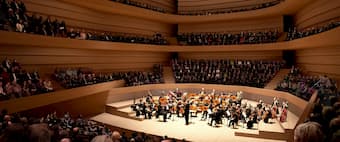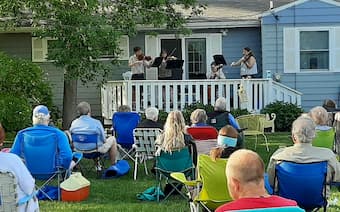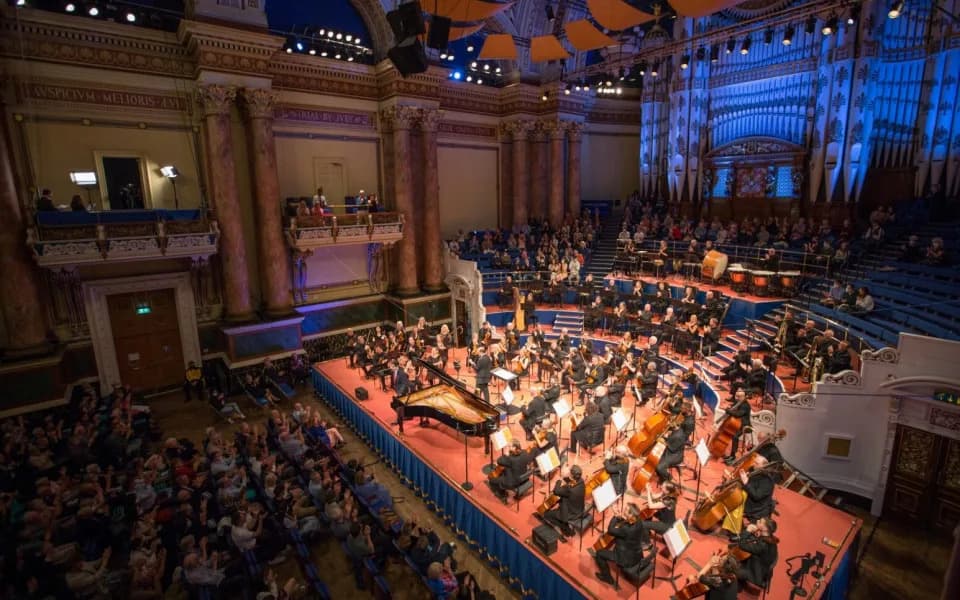This quote by English conductor Mark Wigglesworth, from a recent British newspaper article, has resonances with the philosophical statement “If a tree falls in a forest and no one is around to hear it, does it make a sound?“
Francis Poulenc: Nocturnes, FP 56 – No. 8 in G Major, “Pour servir de coda au cycle” (Alexandre Tharaud, piano)

A full-house concert hall before Covid times © Rhinegold
Of course what Wigglesworth is referring to specifically is the lack of audiences for music this year, due to concert halls being closed in response to the coronavirus pandemic. In his article, he accepts that there has been plenty of excellent online music-making and performances, not to mention broadcasts of archive performances (for example, from the BBC Proms archive), but he makes the very important point that audiences contribute to the special atmosphere of concerts (something I have covered in a previous article), and provide “an intensity of concentration for both performer and listener”.
But does music really not “exist” if no one is listening to it being played? Of course not – and in fact, musicians are very used to playing without an audience: most of the time this is what they do when they are practicing.

Many musicians performed in the back yard during national lockdowns
© Pamela Knudson / Grand Forks Herald
Music is an act of communication whether playing to a live audience, recording equipment in the studio, or to oneself in the practice room or the comfort of one’s home. Wherever we play music – to a full house at Carnegie Hall or at home alone – we bring to life the dots and squiggles on the page, communicating the composer’s ideas.
Never underestimate the power of just playing music alone, of being able to explore a score by oneself. For virtually every musician, professional or amateur, this kind of playing is how we get to know the music intimately and through which we make the most interesting and intriguing musical discoveries. When we play alone, we play for and to ourselves, but this is still an act of communication. The player is also a listener – and if one is undertaking serious work on a piece of music, the act of communicating to oneself and feeding back on what one has heard is a crucial part of the process of practicing and refining.

Music is an act of communication whether playing to a live audience, recording equipment in the studio, or to oneself in the practice room or the comfort of one’s home. © Jessica Cao / Unsplash
There is, of course, another important aspect to playing alone and that is the enjoyment and satisfaction that comes from playing without practicing – playing for the sheer pleasure of it, nothing more. At times like this, we revel in the sounds, the feel of the notes under the fingers, the physical and emotional responses the music provokes. Many of us have favourite pieces which we turn to for this kind of playing. This kind of playing is relaxing and therapeutic – a way to unwind after a busy day, or to de-stress; it is also precious, deeply intimate and personal. And for professional musicians, whose diaries are, sadly, still mostly empty, a curious benefit of the coronavirus lockdown is that many are rediscovering the joy of this kind of music-making, free from the pressures of the profession.
“There is nothing more wonderful than hunkering down with a piano in splendid isolation, especially at night!” – Howard, amateur pianist
Music exists the moment it emerges from the instrument, and never ceases to exist thereafter – and someone is always communicating and listening, even if it is just the person who is playing…
For more of the best in classical music, sign up to our E-Newsletter



